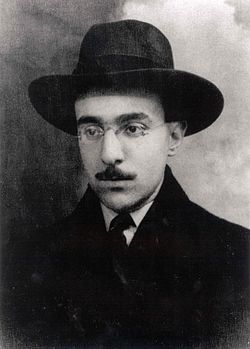Fernando Pessoa Quote
Every spoken word double-crosses us. The only tolerable form of communication is the written word, since it isn't a stone in a bridge between souls but a ray of light between stars.
Fernando Pessoa
Every spoken word double-crosses us. The only tolerable form of communication is the written word, since it isn't a stone in a bridge between souls but a ray of light between stars.
Tags:
written word
Related Quotes
Sometimes ideas flow from my mind in a raging river of stringed sentences; I can scarcely scribble on the page fast enough to keep up with the mental current. Sometimes, however, beavers move in and d...
Richelle E. Goodrich
Tags:
author, ideas, pen, richelle, richelle e goodrich, richelle goodrich, sentences, writer, writer s block, writing
I guess you can call me "old fashioned". I prefer the book with the pages that you can actually turn. Sure, I may have to lick the tip of my fingers so that the pages don't stick together when I'm enr...
Felicia Johnson
Tags:
books, classics, ebooks, kindle, novels, old fashioned, page turners, pages, print, reading books
About Fernando Pessoa
Fernando António Nogueira de Seabra Pessoa (; Portuguese: [fɨɾˈnɐ̃du pɨˈsoɐ]; 13 June 1888 – 30 November 1935) was a Portuguese poet, writer, literary critic, translator, and publisher. He has been described as one of the most significant literary figures of the 20th century and one of the greatest poets in the Portuguese language. He also wrote in and translated from English and French.
Pessoa was a prolific writer both in his own name and approximately seventy-five other names, of which three stand out: Alberto Caeiro, Álvaro de Campos, and Ricardo Reis. He did not define these as pseudonyms because he felt that this did not capture their true independent intellectual life and instead called them heteronyms, a term he invented. These imaginary figures sometimes held unpopular or extreme views.
Pessoa was a prolific writer both in his own name and approximately seventy-five other names, of which three stand out: Alberto Caeiro, Álvaro de Campos, and Ricardo Reis. He did not define these as pseudonyms because he felt that this did not capture their true independent intellectual life and instead called them heteronyms, a term he invented. These imaginary figures sometimes held unpopular or extreme views.
